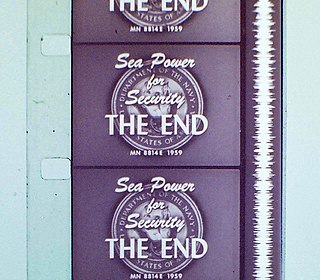
A soundtrack is a recorded audio signal accompanying and synchronised to the images of a book, drama, motion picture, radio program, television program, or video game; colloquially, a commercially released soundtrack album of music as featured in the soundtrack of a film, video, or television presentation; or the physical area of a film that contains the synchronised recorded sound.

Dune is a 1965 epic science fiction novel by American author Frank Herbert, originally published as two separate serials in Analog magazine. It tied with Roger Zelazny's This Immortal for the Hugo Award for Best Novel and won the inaugural Nebula Award for Best Novel in 1966. It is the first installment of the Dune Chronicles. It is one of the world's best-selling science fiction novels.
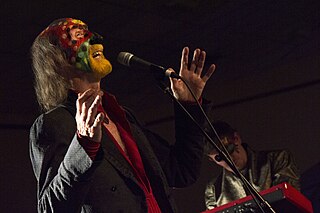
Arthur Wilton Brown is an English singer and songwriter best known for his flamboyant and theatrical performances, eclectic work and his powerful, wide-ranging operatic voice, in particular his high pitched banshee screams. He is also notable for his unique stage persona, featuring extreme facepaint and a burning helmet.
Space rock is a music genre characterized by loose and lengthy song structures centered on instrumental textures that typically produce a hypnotic, otherworldly sound. It may feature distorted and reverberation-laden guitars, minimal drumming, languid vocals, synthesizers, and lyrical themes of outer space and science fiction.

Klaus Schulze was a German electronic music pioneer, composer and musician. He also used the alias Richard Wahnfried and was a member of the Krautrock bands Tangerine Dream, Ash Ra Tempel, and the Cosmic Jokers before launching a solo career consisting of more than 60 albums released across six decades.
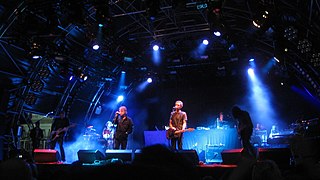
Unkle is a British musical outfit founded in 1992 by James Lavelle. Originally categorised as trip hop, the group once included producer DJ Shadow and have employed a variety of guest artists and producers.

Dune is a German electronic music group known for songs such as "Hardcore Vibes", "Can't Stop Raving", "Are You Ready to Fly", and "Rainbow to the Stars".

X is the tenth album by Klaus Schulze. It was originally released in 1978, and in 2005 was the fifth Schulze album reissued by Revisited Records.

Moondawn is the sixth album by Klaus Schulze. It was originally released in 1976, and in 2005 was the thirteenth Schulze album reissued by Revisited Records. Moondawn is Schulze's first album that was performed in a full Berlin School style, as well as his first to feature contributions from drummer Harald Grosskopf.
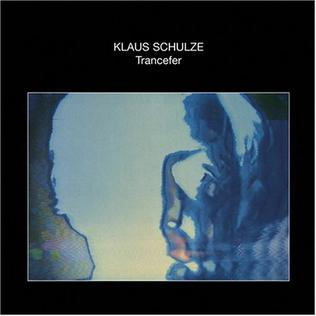
Trancefer is the fourteenth album by Klaus Schulze. It was originally released in 1981, and in 2006 was the twenty-third Schulze album reissued by Revisited Records. With the original total running time of 37 minutes and 23 seconds, it was the shortest album in Schulze's canon until the 2006 reissue doubled its running time by including alternate versions of the main tracks.

Blackdance is the third album by Klaus Schulze. It was originally released in 1974, and in 2007 was the twenty-fifth Schulze album reissued by Revisited Records. For the first time Schulze uses "real" synthesizers and a singer. "Voices of Syn" features Ernst Walter Siemon on vocals. Due to packaging and print errors on later releases, Blackdance was considered Schulze's fourth album for decades, until Klaus D. Müller, Schulze's biographer and publicity manager, discovered from searching through his personal diaries that Picture Music, thought to be the third album, was recorded after Blackdance. Despite this, the reissue labels Blackdance as Schulze's fourth album.

Picture Music is the fourth album of electronic music by German musician Klaus Schulze. It was recorded in late 1974 and released in January 1975 on Brain Records. In 2005 this was the second Schulze album reissued by Revisited Records. This is the only Klaus Schulze solo album in which he can be heard playing a drum kit. Prior to his solo career, he was the drummer for Ash Ra Tempel; on his later albums, drummer Harald Großkopf of Wallenstein frequently contributed. Like many of his albums, this one has one long track on each side.
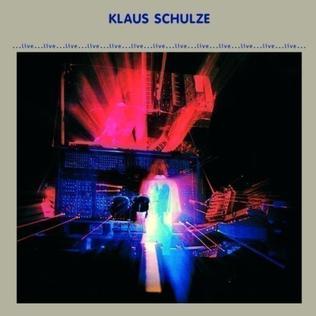
...Live... is the twelfth album by Klaus Schulze. It was originally released in 1980, and in 2007 was the twenty-sixth Schulze album reissued by Revisited Records. The album contains recordings from concerts in Berlin in 1976, and Amsterdam and Paris in 1979. The CD version of "Sense" has been extended from the original LP and now includes a lengthy introduction which did not feature in the original release. "Dymagic" includes a vocal performance by Arthur Brown, similar to the one found on Dune, the last studio album before the tour.

Le Moulin de Daudet is the twenty-seventh album by Klaus Schulze. It was originally released in 1994, and in 2005 was the fourth Schulze album reissued by Revisited Records. Le Moulin de Daudet was released after Schulze's Silver Edition 10-disc CD box set, technically making this album his thirty-seventh. It is the soundtrack to the film of the same name. The reissue bonus track is an excerpt from the previously released limited promo CD Ion (2004).
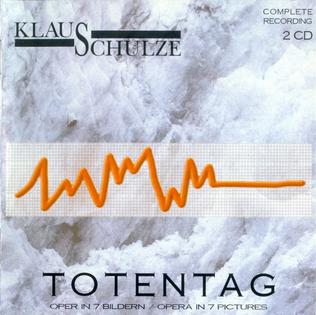
Totentag is an electronic opera and the twenty-ninth album by Klaus Schulze. It was originally released in 1994; its libretto is inspired by the last days of the expressionist poet Georg Trakl. This is the seventh and last of the early-1990s Klaus Schulze albums not to be reissued by Revisited Records. Totentag was released after Schulze's Silver Edition 10-disc CD box set, technically making this album his thirty-ninth.
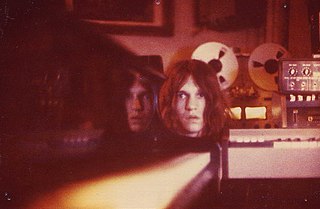
Earthstar is an electronic music group from Utica, New York. Earthstar was encouraged by Krautrock/Kosmische Musik/electronic music artist, composer, and producer Klaus Schulze to relocate to Germany where they contracted with Sky Records. Schulze inspired and produced their second album, French Skyline. Earthstar is notable as the only American band who participated in Germany's Kosmische Musik/electronic music scene while still at its height.
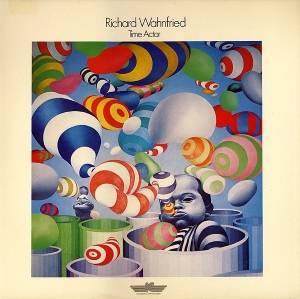
Time Actor is the first album by Klaus Schulze released under the name of Richard Wahnfried. It was originally released in 1979, and was not reissued by Revisited Records as part of the overall reissue program of Schulze albums. A reissue was released in July 2011 by Esoteric Records.
This is the discography for Australian musician Lisa Gerrard.

The music for the 2021 American film Dune was composed, conducted, and produced by Hans Zimmer. Zimmer wrote several soundtracks of music for the film, including for its sequel, and heavily utilized choir—specifically female voices—percussion, and strings in the score's instrumentation, as well as acoustic and wind instruments. New, hybrid instruments were fabricated to conceive the "otherworldly" tonal desert sounds heard in the film. The music has been described as the composer's most "unorthodox" and experimental yet. In addition, the score for the film earned Zimmer his second Academy Award for Best Original Score. When Dune: Part Two was announced for a 2023 theatrical release, it was revealed that Zimmer had begun work on the film's music and had over an hour of music to assist the filmmakers in planning the film.

Deus Arrakis is the forty-seventh album by Klaus Schulze. It was released on 1 July 2022. It is the final album Schulze made before he died of renal failure in April 2022. Taking in consideration the previously released multi-disc box sets, it could be viewed as Schulze's one hundred and eighth album.


















